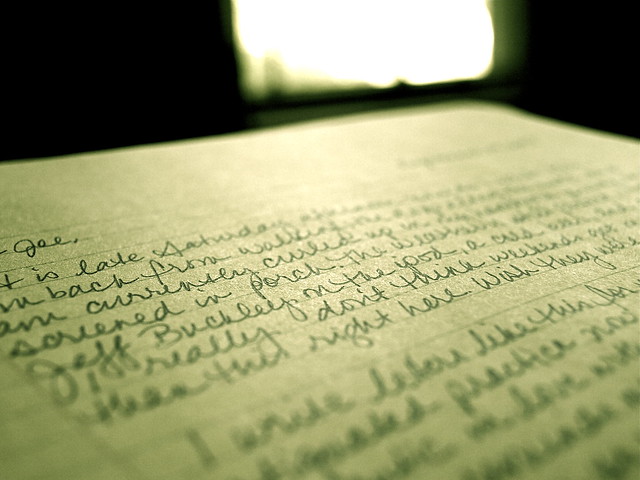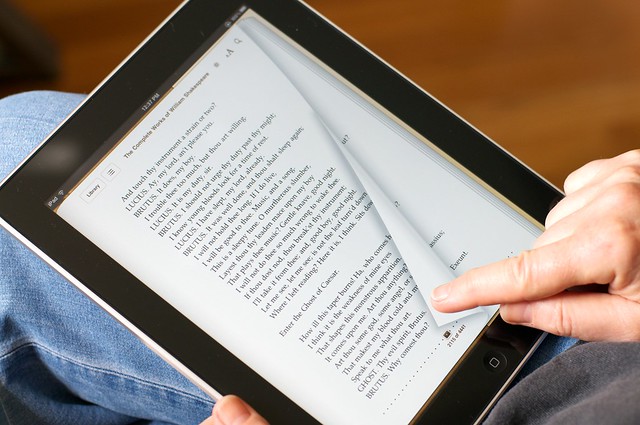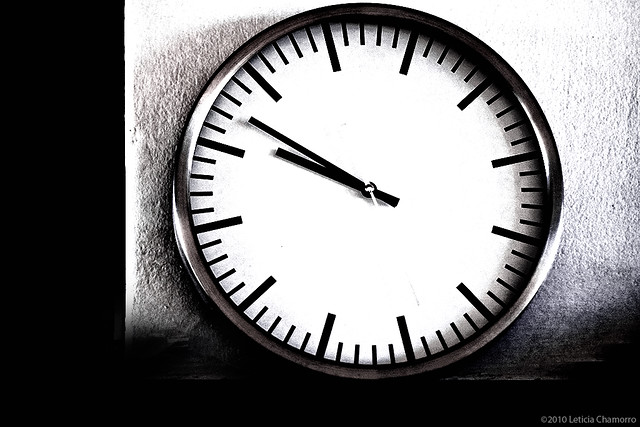 |
| Photo credit: CollegeDegrees360 on Flickr |
Chances are you aren't walking over to the counter to buy it yet—you're going to sample it first by cracking it open to the first page.
From there, one of two things happen: either the writing grabs you and you bring the book to the counter or make a mental note to buy it later, or you lose interest and return it to the shelf. Two very different results based solely on whether or not you like what you find on that first page.
I don't know about you guys, but when sampling a book, I generally read until I don't want to anymore. If I've made it to the end of the first chapter (or however long the sample is, in the case of e-books) and I'm still interested, I'll buy the book, or at least add it to my TBR list. If I lose interest somewhere before that (even if that "somewhere" is in the first sentence), I put the book back and move on. And as I understand it, I'm not the only one who samples books in a similar manner.
The thing is, when a reader picks up your book, your first page carries the very heavy responsibility of grabbing their interest and not letting go for anything. There's no such thing as a throwaway sentence in your first 250 words—every line must make the reader want to read the next, or it doesn't belong there.
Your first page must:
- Hook the reader. Whether the reader is an agent, editor or someone contemplating whether or not to buy your book, the first page is your only chance to grab their attention.
- Introduce your protagonist. This pretty much goes without saying, but we need to meet your protagonist just about immediately if you hope to grab interest.
- Make your readers care. In most cases your readers aren't going to fall in love with your protagonist in the first 250 words, but by the end of the first page they should have a good sense as to why they should care about your protagonist's plight, which leads me to...
- Hint at conflict. This doesn't mean that there needs to be a gun battle on the first page, but we need to get a sense (even if it's just foreboding) that something isn't quite right, or that something will happen very soon.
It's a lot of work for just 250 words, but it's truly essential to a successful first page, and it's why publishing professionals often advise against starting a novel with a character doing menial, everyday tasks (ergo brushing teeth, getting ready for school, etc.). When revising the beginning of your WIP, I recommend taking a good hard look at that first page to see if it accomplishes those four tasks. It might just be what you need to pique someone's interest in your work.
NOTE: After writing this post I found this very informative post by agent Laurie McLean on the first pages of a WIP including some very helpful dos and don'ts. Definitely check it out.
In your opinion, how important is the first page of a novel? How long do you usually read when sampling work?
In your opinion, how important is the first page of a novel? How long do you usually read when sampling work?










